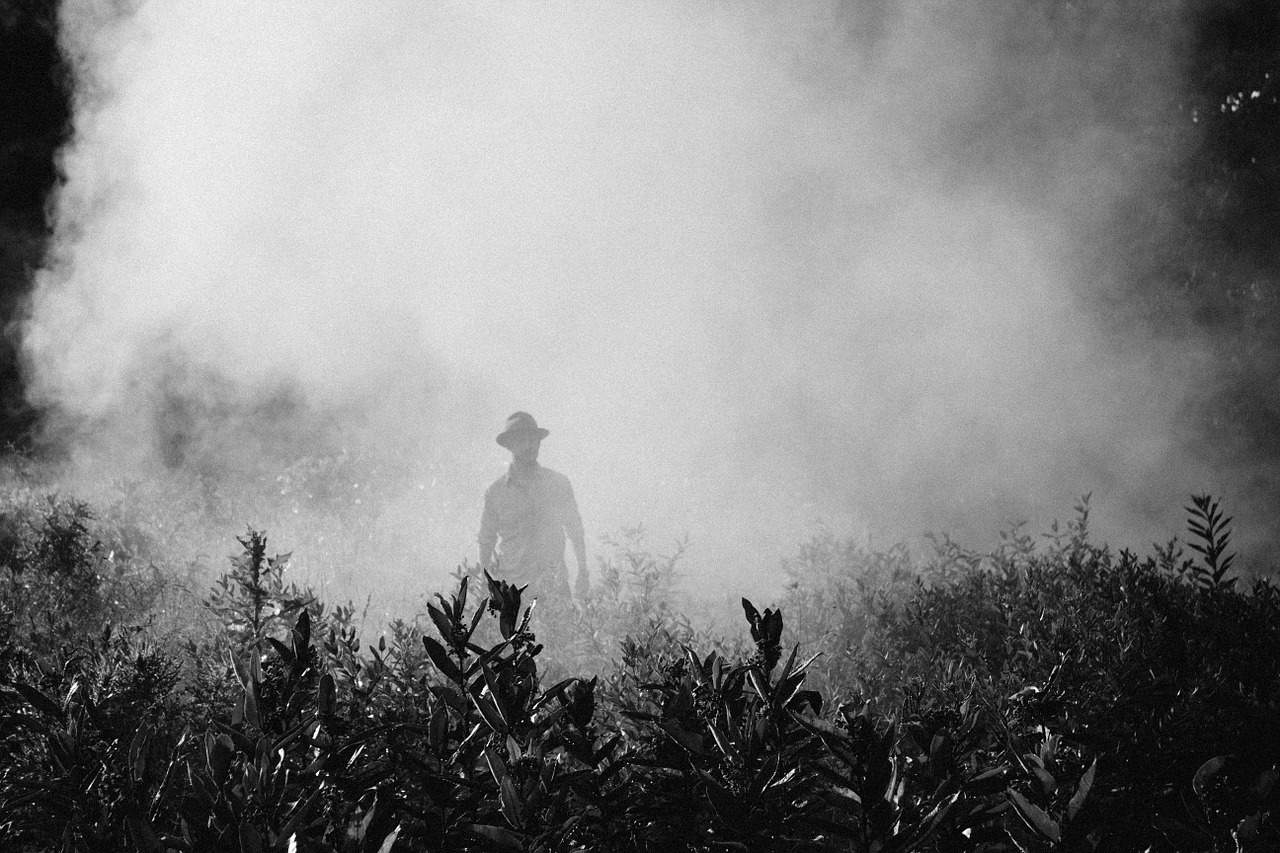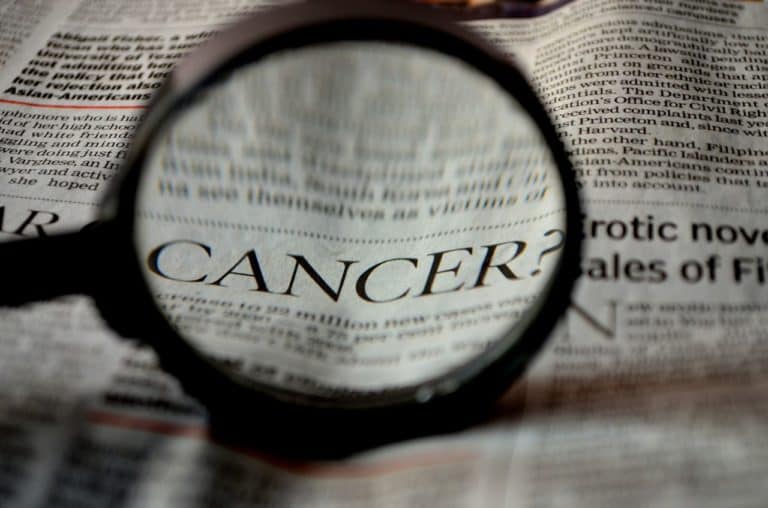At first, the United States government said there was no connection between the Agent Orange sprayed during the Vietnam War and the increased appearance of prostate cancer among veterans. Then, in 1996, the Institute of Medicine concluded its report, “Veterans and Agent Orange: Update 1996,” and admitted there was credible evidence of a positive association between exposure to the herbicides used during the Vietnam War and the development of prostate cancer.
However, there is a difference between having “credible evidence” and demonstrating a link between the use of Agent Orange and the development of prostate cancer. Researchers say they found such a link back in 2008, but what about the research that led up to that conclusion? What have the findings meant to men who were exposed to Agent Orange? Before we answer these questions, let’s take a brief look at Agent Orange.
What is Agent Orange?
The herbicide Agent Orange, which is now banned, was manufactured for the US Department of Defense mainly by Dow Chemical and Monsanto Corporation. Agent Orange, so named because it was stored in barrels with an orange stripe, is a combination of two synthetic substances known to be contaminated with the dioxin tetrachlorodibenzo-para-dioxin (TCDD) during manufacturing. The herbicide was one of many defoliants released in the jungles of Vietnam during the war so US soldiers could better see enemy activity.
More than 20 million gallons of Agent Orange and similar herbicides are believed to have been sprayed between 1962 and 1971, although Agent Orange was the dominant agent used. The vast majority of the spraying was done in Vietnam, but US troops in South Korea from 1968 to 1969 also may have been exposed to the herbicide.
After Vietnam veterans returned home, many began noticing problems with their health and the health of their newborn children. In addition to an increase in the number of birth defects, veterans noted increased rates of respiratory problems, skin disorders, nerve problems, digestive disorders, and cancer, including prostate cancer, colon cancer, leukemia, throat cancer, liver cancer, Hodgkin’s lymphoma, and non-Hodgkin’s lymphoma.
In 1997, the International Agency for Research on Cancer named TCDD as a group 1 carcinogen, which put it in the same cancer-causing category as arsenic, asbestos, and gamma radiation. By then, however, the damage had been done.
Agent Orange and prostate cancer
Although the Institute of Medicine report noted there was evidence of a connection between exposure to Agent Orange and the development of prostate cancer, research linking the herbicide to this form of cancer was not published until 2008 by the University of California Davis Cancer Center. (Chamie) Between 1996 and 2008, several efforts were made to examine the relationship between Agent Orange and prostate cancer. For example:
- In July 2001, a study by the Veterans Affairs Palo Alto Health Care Systems evaluated the rate of prostate cancer in veterans referred for prostate biopsy who had been exposed to Agent Orange (32 men) and compared them with veterans who had not been exposed (96). Of the 32 veterans exposed to Agent Orange, 13 (41%) had prostate cancer compared with 33 of the controls (34.4%). The men in both groups had similar PSA levels. According to the study’s authors, “Agent Orange may have a role in the causation of some types of cancer but we identified no significant relationship of prostate cancer with Agent Orange exposure in patients referred for prostate biopsy.” (Zafar)
- In 2004, a small pilot study conducted at the University of Michigan Medical School assessed 47 veterans with prostate cancer and 142 cancer-free controls. After making adjustments for age and race, men with prostate cancer were about twice as likely to have been exposed to Agent Orange than were controls. (Giri)
- In 2006, a study looked at veterans of the US Air Force who sprayed herbicides contaminated with TCDD in Vietnam from 1962 to 1971 (Operation Ranch Hand) and compared them with vets who served in Southeast Asia during the same time but who did not spray herbicides. The investigators did not find an increased risk of prostate cancer among vets in Operation Ranch Hand when compared with vets from Southeast Asia. (Pavuk)
Now we return to the UC Davis study, where physicians were the first to analyze a large population of men (more than 13,000 Vietnam veterans) in their 60s and to use the PSA test (prostate-specific antigen) to screen for prostate cancer.
Until that time, other studies had found a link between Agent Orange and Hodgkin’s disease, non-Hodgkin’s lymphoma, and soft-tissue sarcoma, but there had been limited evidence of a connection between the herbicide and prostate cancer. The UC Davis study showed that Vietnam War vets who were exposed to Agent Orange not only had twice the risk of developing prostate cancer, but they also had nearly four times the risk of getting aggressive prostate cancer and were diagnosed 2.5 years younger.
Co-author Ralph deVere White, director of the UC Davis Cancer Center, pointed out “Just as those with a family history of prostate cancer or who are of African-American heritage are screened more frequently, so too should men with Agent Orange exposure.”
Agent Orange studies post 2008
Following the 2008 study from UC Davis, a study in West Virginia explored the impact of brachytherapy on Vietnam vets with Agent Orange exposure compared with vets without exposure and nonveterans. The authors did not observe any significant difference in survival among men in the three groups. (Everly)
In 2009, investigators at the Augusta Veterans Affairs Medical Center evaluated veterans with prostate cancer who had been exposed to Agent Orange and who underwent radical prostatectomy and compared them with veterans who had not been exposed to the herbicide. A total of 1,495 veterans were studied, of whom 206 (14%) had been exposed to Agent Orange. Overall, the researchers found that veterans with Agent Orange exposure who chose radical prostatectomy may be associated with more aggressive prostate cancer. (Shah)
Also in 2009, eight experts commented on the 2008 study by Chamie et al. In their correspondence, entitled “Agent Orange exposure, Vietnam War veterans, and the risk of prostate cancer,” they noted that Chamie’s study is “valuable in that it focuses attention on the issue of exposure to chemicals and prostate cancer in Vietnam veterans,” and that their conclusions were “biologically plausible based on studies in laboratory animals and is consistent with some epidemiologic studies in humans.”
However, they also pointed out that more accurate biologic assessment methods should be used and could “vastly enhance and validate the findings.” They also noted that high levels of other toxins in Vietnam, including pesticides and dibenzofurans, have been found, and that “focusing only on Agent Orange exposure with respect to health in veterans is no longer appropriate.” Indeed, other research has shown an association between environmental chemicals and cancer.
Veterans Administration and prostate cancer
According to the Veterans Administration, veterans who were exposed to Agent Orange or other herbicides while they served in the military do not have to prove a connection between development of prostate cancer and their military service to be eligible to receive VA disability compensation. In addition, veterans who served in Vietnam, the Korean demilitarized zone, or other areas where Agent Orange was released may be eligible for a free, comprehensive Agent Orange registry health examination through the VA.
If you are a veteran of the Vietnam War or you served in the demilitarized zone between North and South Korea in 1968 to 1969 and you have not been screened for prostate cancer, contact the Department of Veterans Affairs for information.
Read more in our Prostate Cancer Health Center.
Sources
Chamie K et al. Agent Orange exposure, Vietnam War veterans, and the risk of prostate cancer. Cancer 2008 Nov 1; 113(9): 2464-70
Everly L et al. Prostate cancer control and survival in Vietnam veterans exposed to Agent Orange. Brachytherapy 2009 Jan-Mar; 8(1): 57-62
Giri VN et al. Association between Agent Orange and prostate cancer: a pilot case-control study. Urology 2004 Apr; 63(4): 757-60
Pavuk M et al. Prostate cancer in US Air Force veterans of the Vietnam war. J Expo Sci Environ Epidemiol 2006 Mar; 16(2): 184-90
Schecter A et al. Agent Orange exposure, Vietnam War veterans, and the risk of prostate cancer. Cancer 2009 Jul 15; 115(14): 3369-71
Shah SR et al. Exposure to Agent Orange is a significant predictor of prostate-specific antigen (PSA)-based recurrence and a rapid PSA doubling time after radical prostatectomy. BJU International 2009 May; 103(9): 1168-72
US Department of Veterans Affairs. Prostate cancer and Agent Orange
Zafar MB, Terris MK. Prostate cancer detection in veterans with a history of Agent Orange exposure. J Urology 2001 Jul; 166(1): 100-3







